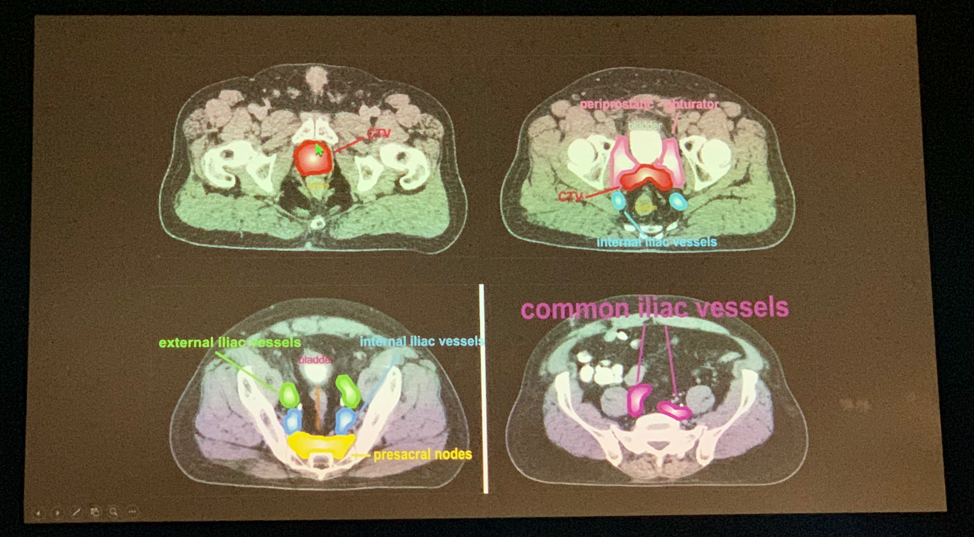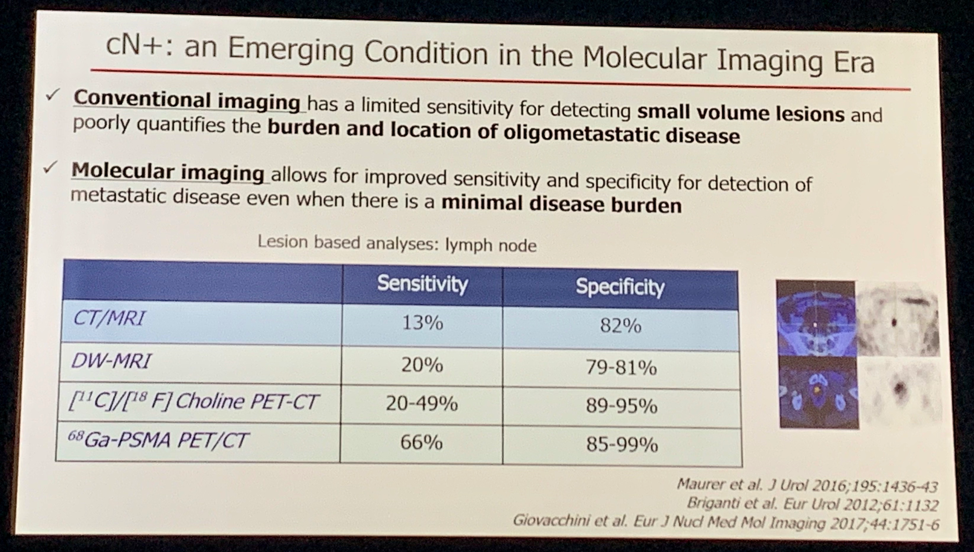ESMO 2019: Treatment of Pelvic Node-Positive Prostate Cancer: Advances in Pelvic Nodal Radiotherapy
Barcelona, Spain (UroToday.com) At the 2019 European Society for Medical Oncology annual meeting (ESMO), experts gathered from urology, radiation oncology, and medical oncology to discuss the clinical management of pelvic node-positive (cN+) prostate cancer. Dr. Gert De Meerleer, discussed the role for radiotherapy (RT) in managing pelvic node-positive prostate cancer. The session began with the presentation […]


